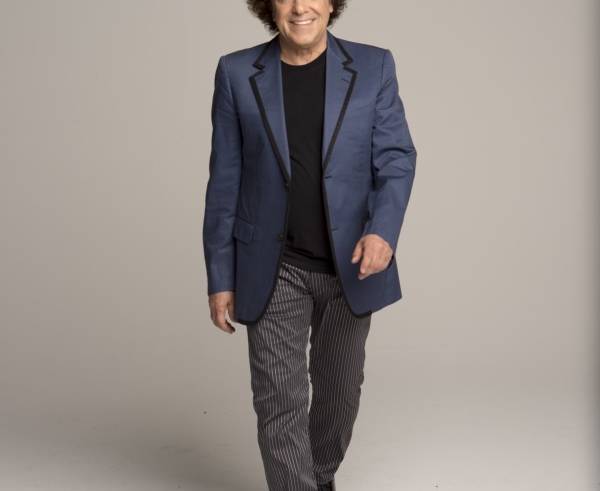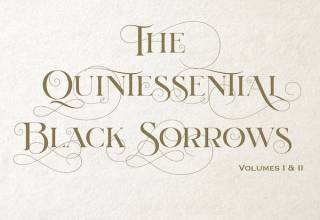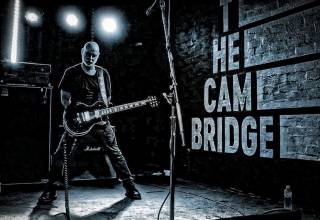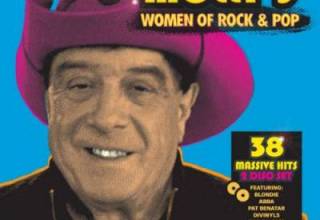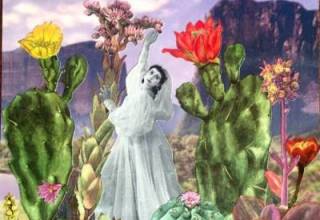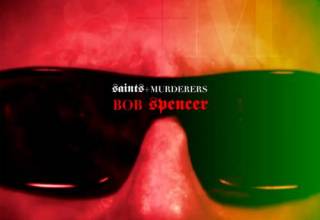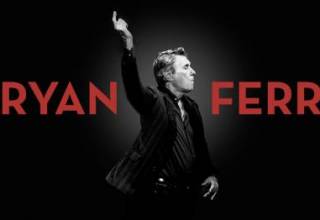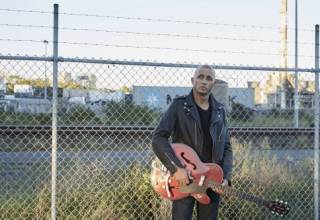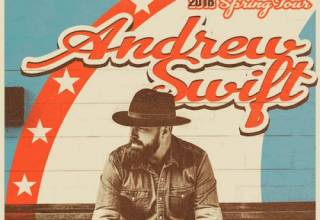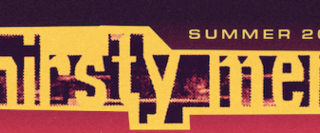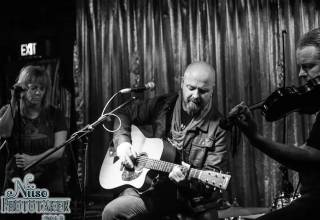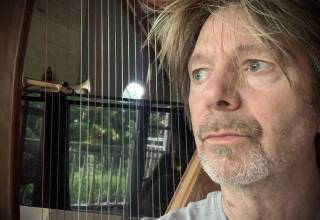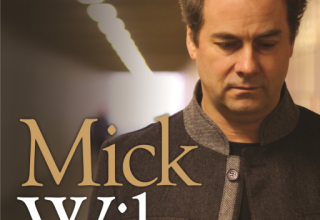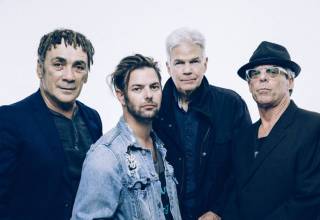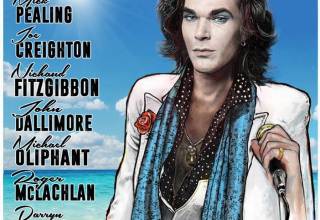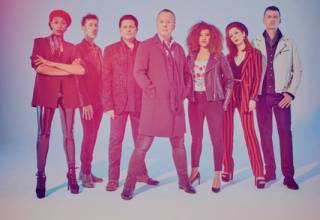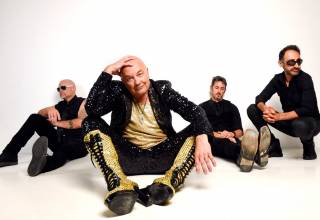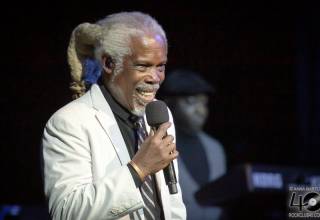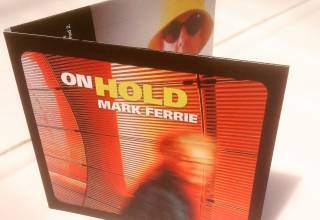When I caught up with singer Leo Sayer to talk about his latest album ‘Restless Years’, he was enjoying a couple of days off in between gigs on his national tour of the same name. “I’ve moved home,” he informs me. “So I’m building a studio here so there’s a bit of stuff to do in the background.”
The tour has been underway for about six weeks now and there are still more dates to go. Leo says that the response so far has been ‘Fantastic’ but he has lost count of the number of shows he has done so far. And when this tour winds up? “Well, we’re releasing the album in England,” he explains. “We’ve got a tour there in September/October so we’re prepping up for that plus there’s going to be a few little one-off gigs I think after this is done as well which is fine. It’s all work. A few commitments that I’ve got on the plate and other than that, just enjoying moving into my new place.”
‘Restless Years’ was released in Australia in January and hit the charts in its first week of release. Leo says that he is very happy with the way the album has been received. “It’s selling nicely and everybody seems to like it. The new songs that we are doing on stage are being received very well. We can’t fit the whole album in so we do about four songs but they’re going down really, really well and people are starting to sing along to them as soon as we start them so that just shows one side of it and then the other is people are buying them after the show so you get to see it first hand; you get to feel the success first hand which is really good.”
We have had a bit of a wait since Leo’s last studio album in 2006. “But you know,” he points out, “I produce them myself and when you do work on them yourself and you do all the arranging and get all the demos together, it can just necessarily take a bit of time. I know some people can go into the studio and cut records very quickly. In fact, the actual physical recording of this album was quite short but it just takes time for me to dredge up the material. You want to get it completely right and I have very accurate and very complex demos that I make before I go in and that takes a while to do.” He explains that just getting material together for a project like this and to get it ‘sounding right’, can take a couple of years. “My records have big life spans and the more work that you put into them, the bigger life span you’re going to get. They’re really not just the work of the moment and it can take time to do them. I’m very pedantic but I’m also particular and these days, a four or five year wait for a record, in fact, is a known thing. Brian Wilson has just produced an album and he hasn’t really made an album for about eight years and it’s worth it because when you listen to Brian Wilson’s album, the songs are just amazing and he really worked on them. It can take a long time to work on songs. I can write them very quickly but to actually get them to the next stage, takes a little bit of work. And also time and experience are very good things with songs. The more you do with them and the more you get used to them, the more that comes to them because there’s more experience and more … how do you say it? Thegestation period is part of the growth. You’d be surprised to learn that most Hollywood scripts take ten years to write. Most movies that you see are perhaps twenty years in gestation. I’m in a nice situation where no one’s pushing me to do anything in any shape or form or time. It’s all up to me which I kind of like because I like being in control of what I do in my career and essentially the timing of what I do is kind of important to keep it in mind space so it’s creativity that’s the governing factor but there’s always the moment when I just kind of give myself the hurry up. I’m very responsible.”
Some of the songs on the album had been lying in wait for several years, according to Leo and some were written more recently. “In fact,” he reveals, “‘How Did We Get So Old?’ and ‘Mr In Between’ I wrote two weeks before going into the studio.” But others had been written some time ago and had never been included on an album before. “And I thought that it was high time to do it. There were a couple of songs that I had at the time of my last album, ‘Voice in My Head’ in 2005/2006 and they didn’t fit on the album and they fitted now. ‘One Green World’ and ‘Revolution of the Heart’ and ‘Restless Years’ come from that period, and a couple of those I wrote with Albert Hammond around that time so they’ve kind of paid forward in a nice way. ‘One Green World’ is more relevant now than it was then. I wrote that in 1992. I was worried about the planet then and now we’ve got ourselves into a situation that’s even more worrying!”
Leo’s song writing inspiration comes largely from observing the world around him. “I think I’m much like Paul Simon or Leonard Cohen or Bob Dylan in that way,” he suggests. “When Bob Dylan writes (that) things have changed or everything has broken, he’s talking about the planet now and these are acute observations of humanity and what we do at this moment. People kind of say ‘No, he’s just writing in his past of some dream world’ but no… he’s writing of the situation as it is now. Think of Sting and writers like that… we’re all writing about what we observe and I think that, as life goes on, especially if you come from those halcyon years of the 60s when we thought we could change things and we thought things were much more in our hands rather than with the blokes that wear ties. Now the blokes who wear ties are completely in charge and there’s nothing we can do. So you think ‘Wouldn’t it be nice to pass on the observances of someone who was around in that freer, more idealistic time; to pass that on to kids now, or wouldn’t it just be nice to inspire those around you to do something about it?’ That’s what ‘Beautiful Year’ and ‘One Green World’ were about, trying to sort of say ‘Beautiful year, why do we live in a planet of fear?’ Why do we let fear run our lives and why don’t we want to make a change and in ‘One Green World’, just to say that ‘No, the environment is important and the planet is important and natural order is the one that we should be following.’ Plenty of people do and they live happier lives whereas plenty of us want to bow down to the great dollar and greed and everything like that. It’s a bit sad, I feel. So, me being sad about it means I want to share that with people and I think that the social media that we have now is fantastic because we are finding a global voice. But even that they’re trying to shut down,” he laughs but it’s a laugh more of frustration than anything else. “The best Australian potential leader is actually incarcerated in the Ecuadorian Embassy so it’s… frustrating. People who reveal things about life and reveal the truth about things are the people that are the most dangerous and it’s sad to me that we live in a world where truth is dangerous, so a lot of the underlying themes in ‘Restless Years’ are all about that.”
When asked to choose a favourite song from the album or, indeed, from his entire catalogue, the singer says that he is stumped for choice because, as he explains, “I’m a Gemini so I am a multi-faceted person. Basically, I always think that every song is a chapter in a book. I don’t think that there is ever one song that would have everything that I ever thought about anything because I have a dichotomy of ideas myself so, accepting that, I tend to write chapters in the book; the facets. There’s that lovely thing that the Chinese have in Chengdu where they have the ‘changing faces’. They have masks that they rapidly change. It just shows how multi-faceted we are. We all have a good face, a bad face, an angry face and a peaceful face, a happy face and a sad face. All of those are relevant. Terry Pratchett, who just died, said that the power of writing could show so many sides of yourself and you could hide between each one of them so that people could kind of think that you are this person but you are always going to get them back in the next book and be another. That kind of diversity is important to know I think. A creative mind will always be alert and you’ll always kind of be open not only to others and within the world but possibilities within yourself.”
And that is, in part, why he says that he is ‘a little bit averse’ to writing an autobiography, noting that it is something that ‘everybody else’ seems to be doing. “I’m kind of warming towards the idea now but I don’t think my book has been written yet. My life, I mean. I haven’t completely finished exploring and in exploring, you realise that it’s a glass half full if you only write about what you’ve done up to now. “Bob Dylan was always my favourite songwriter and throughout his career, there are changes and surprises and you never know where he’s going next and he’s still so adroit and intelligent about things. His address at the MusiCares thing went down to the core of where songs come from and communicate and pass things on. It was remarkable and really thought provoking. I thought I knew everything about it but I guess you never do. I have a very questioning and exploring mind so it’s quite interesting.”
Working with Leo on this album are some very talented Australian musicians including ARIA Award winning Engineer, Mitch Cairns, drummer Johnny Salerno, Bill Risby on keyboards and Danny Spencer on guitar. “I always try to use the most talented bands that I can find,” he tells me. “And I discovered Mitch and John Salerno and Danny Spencer, really, by doing the Good Times Tour out of Victoria with them. They’re all musicians out of Victoria. Mitch has a studio there and Bill Risby was playing piano on the tour. We were all getting on so well that I turned around to them and said ‘Look, I want to make an album. Do you guys feel like coming and doing it with me?’ I didn’t know whether I was going to do it with a band or whether I was going to do it myself and just add some musicians to it but it suddenly became a band thing and I think it’s better for it because there’s a really nice interplay going on between all of us. We recorded it very quickly. We recorded three or four songs a day in the studio and just banged through it and then the next process was with my right hand man John Hudson who mixes and edits with me. We just took it up to his place in deepest Ipswich in a place called Marburg in the country and sort of reconstructed what we had there so that’s part of the process as well. John’s an immensely talented person. He was behind all the Tina Turner records, recorded all of those in his studio and mixed them and he’s got BAFTAs and GRAMMYs and all the awards for best records so he’s an incredible talent as well. He did Bryan Adams’ big selling albums and Travis and Pink Floyd, just about everybody. He’s now living here and in the past he did ‘Orchard Road’ and ‘More Than I Can Say’ on ‘Living in a Fantasy’ with me so he’s someone I really enjoyed working with as well. There’s a lot of talent there.”
Born and raised in the U.K., Leo now calls Australia home and I am curious to find out what led to his decision to move here.
“Well, you know, I’ve been coming here for many years,” he explains. “Of course, I came here the first time touring in ‘74 and instantly loved it. It was just a place that seemed freer than anywhere else. Australia was a country that you could kind of explore for yourself, rather than have to do it by some kind of guidelines so that hit me immediately and I thought, well, this is a great place to be because you can be who you want to be here and that seems to be true although we have a hellish government now and another bureaucracy kind of tripping us all up. It’s still a very much kind of ‘jump into a car and go to places’ country and it can be whatever you want it to be. It’s multi-faceted, multi-racial, multi-cultural and very exciting in that way and so it was a no brainer for me to think, when my career was kind of down in England, I was still getting enthusiastic offers from Australia so coming here was part of answering that call really and I’m glad I did. I haven’t stopped working since I’ve been here whereas in England I’d have been maybe put to the nostalgia kind of sector of the business while here, we do have a culture of a lot of the new artists and the new is important of course but, at the same time, there is still a place for all the legends in this country. It’s very important.”
“You see that Russell Morris and Ross Wilson and Brian Cadd and Renee Geyer and all those people are still being venerated. The climate of the music industry adores them and accepts and values them. It was surprising to some people when Russell stepped up at the ARIAS to pick up his award at the time but, in the industry, it wasn’t surprising at all. And that’s the balance that I think is exciting about this country. I love performing in Australia because, you know, people here are really into live music. There’s a great acceptance and enthusiasm. People love guitar bands and that kind of thing. We found that, on The Good Times Tour, touring with my Australian contemporaries, with Richard Clapton, Russell Morris and Joe Camilleri and all the musicians that have been around a long time that the music is so accepted. When we’d come out and do ‘Good Times’ at the end, they’d go off their heads as if it was still up there in the charts. It feels really alive still and I think we got that on the Countdown Tour as well. I have a country here which gives me the template where I can prove that I am good on stage and good at making records whereas you might be put into a box in the old country ,‘Oh he’s Leo Sayer but he’s 67 years old’ but those boxes don’t seem to occur here. There is a real lot of good music out there and rewards for energetic work. If you put it in, you get it back and that’s very encouraging. It all comes back to us and we can feel that and that’s why I think that Aussie artists… if I can include myself in that… really do raise their game and now that I’ve raised my game, I think I’m a better performer than I’ve ever been. I’m getting better and better and that’s inspired by the reaction I get.”
by Sharyn Hamey
Copyright © Sharyn Hamey 2015. All rights reserved
Leo Sayer’s ‘Restless Years’ album is out now on Fanfare Records
For more information about the album and the tour, go to Leo’s website

